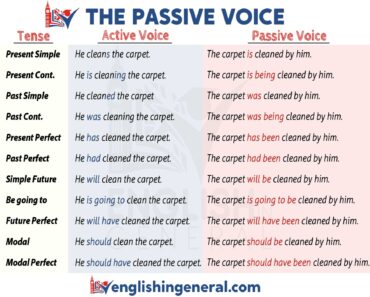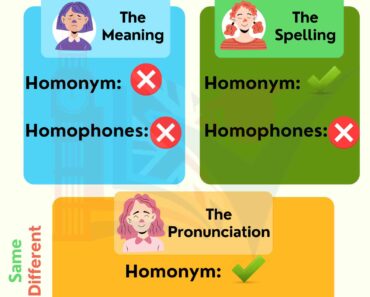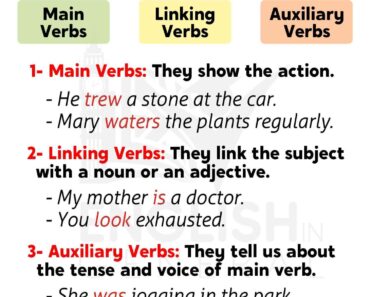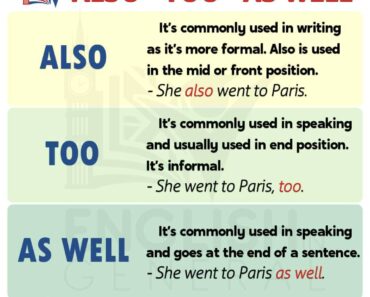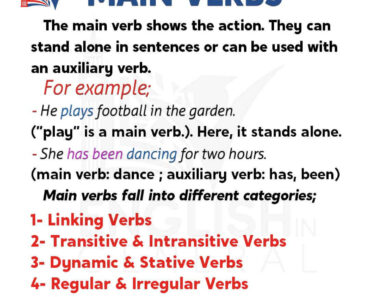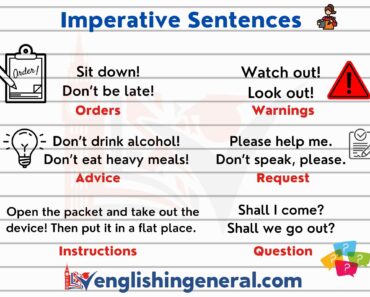Used to, Be used to, Get used to in English
The English language has several ways of expressing habits or actions in the past. One such way is to use various forms of the expression “used to”. In this article, we will look at the difference between “used to,” “be used to,” and “get used to”.
USED TO
Let’s start with the phrase, “used to”.
Used to is always followed by a base verb.
We use “used to + infinitive” to talk about something we did regularly in the past, but do not do it now.
Remember that, in negative sentences, we say “use to” instead of “used to”.
They’re not really confused when speaking, because “-d” is silent, so the pronunciation is the same.
Form: Used to + Infinitive (V1)
| Positive Sentences (+) | I used to love playing basketball when I was younger. |
| Negative Sentences (-) | I didn’t use to like spicy food, but now I love it. |
| Question Sentences (?) | Did she use to have long hair? |
BE USED TO
Be used to is followed by a noun, pronoun, or -ing form of a verb.
If you are used to something, you are familiar with it.
Form: Be used to + noun / pronoun / gerund (verb+”-ing”)
| Positive Sentences (+) | I am used to working long hours. |
| Negative Sentences (-) | I am not used to this kind of cold weather. |
| Question Sentences (?) | Are you used to working with computers? |
GET USED TO
Get used to is also followed by a noun, pronoun, or -ing form of a verb.
We use” get used to” to talk about the process of becoming familiar with something.
And, it can be used about the past, present, or future.
Form: Used to + noun / pronoun / gerund (verb+”-ing”)
| Positive Sentences (+) | I am getting used to living alone. |
| Negative Sentences (-) | I couldn’t get used to living alone. |
| Question Sentences (?) | Have you gotten used to living alone? |
What’s the difference between Used to, Be used to, Get used to ?
English learners often confuse used to, be used to and get used to. They look similar, but they have very different uses. What’s the difference?
Used to : it is used to describe a past habit or state that is no longer happening or true.
– I used to play tennis every weekend, but now I don’t have time.
Be used to : it describes the state of being familiar or comfortable with a particular thing.
– She is used to working with children and loves her job as a teacher.
Get used to : it describes the process of becoming accustomed to a new thing or situation.
– I am getting used to the new schedule at work.
Note that “used to” and “be used to” are typically used in the past tense, while “get used to” can be used in the present or future tenses.
Used to : Example Sentences
- He used to wear glasses, but now he has contact lenses.
- I used to love playing soccer when I was a child.
- He used to smoke, but now he’s quit and is healthier.
- I used to be afraid of public speaking, but now I enjoy it.
- She used to take the train to work every day.
- We used to have a big family dinner every Sunday.
- She used to love chocolate, but now she’s cut back on sweets.
- Sophia used to watch a lot of TV, but now she prefers to read books.
- He used to be shy, but now he is more confident.
- I used to be a night owl, but now I’m an early bird.
Be used to : Example Sentences
- She’s used to working with children and loves her job as a teacher.
- I’m used to the cold weather, I was born and raised here.
- The city residents are used to the loud noise from the traffic.
- I’m used to the long working hours as a freelance graphic designer.
- We’re used to the high cost of living in this city.
- She’s used to the strong winds in the coastal town she lives in.
- He’s used to speaking in front of crowds.
- I’m used to the high pressure and stressful nature of my job as a lawyer.
- She’s used to traveling frequently for work.
- I’m used to waking up early every day for work.
Get used to : Example Sentences
- They were still trying to get used to being in a long-distance relationship.
- You’ll get used to the cold weather if you stay here long enough.
- He had to get used to cooking for himself after his wife passed away.
- I’m trying to get used to exercising regularly to stay healthy.
- You’ll get used to the new medication and its side effects with time.
- They moved to a new country and are still trying to get used to the different culture.
- I need to get used to eating healthier foods if I want to lose weight.
- She was nervous about her new job, but she was determined to get used to it.
- I was getting used to living with a roommate after living alone for so long.
- It was difficult for him to get used to working a 9-5 job after years of freelancing.
Note:
In conclusion, it is important to understand the difference between these expressions as they are commonly used in everyday conversation. “Used to” describes a past habit or action that is no longer performed. “Be used to” describes a current state of being familiar with something. “Get used to” describes the process of becoming familiar with something. By using these expressions correctly, you can add more depth and nuance to your speech and writing.

